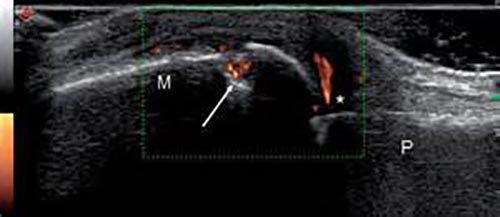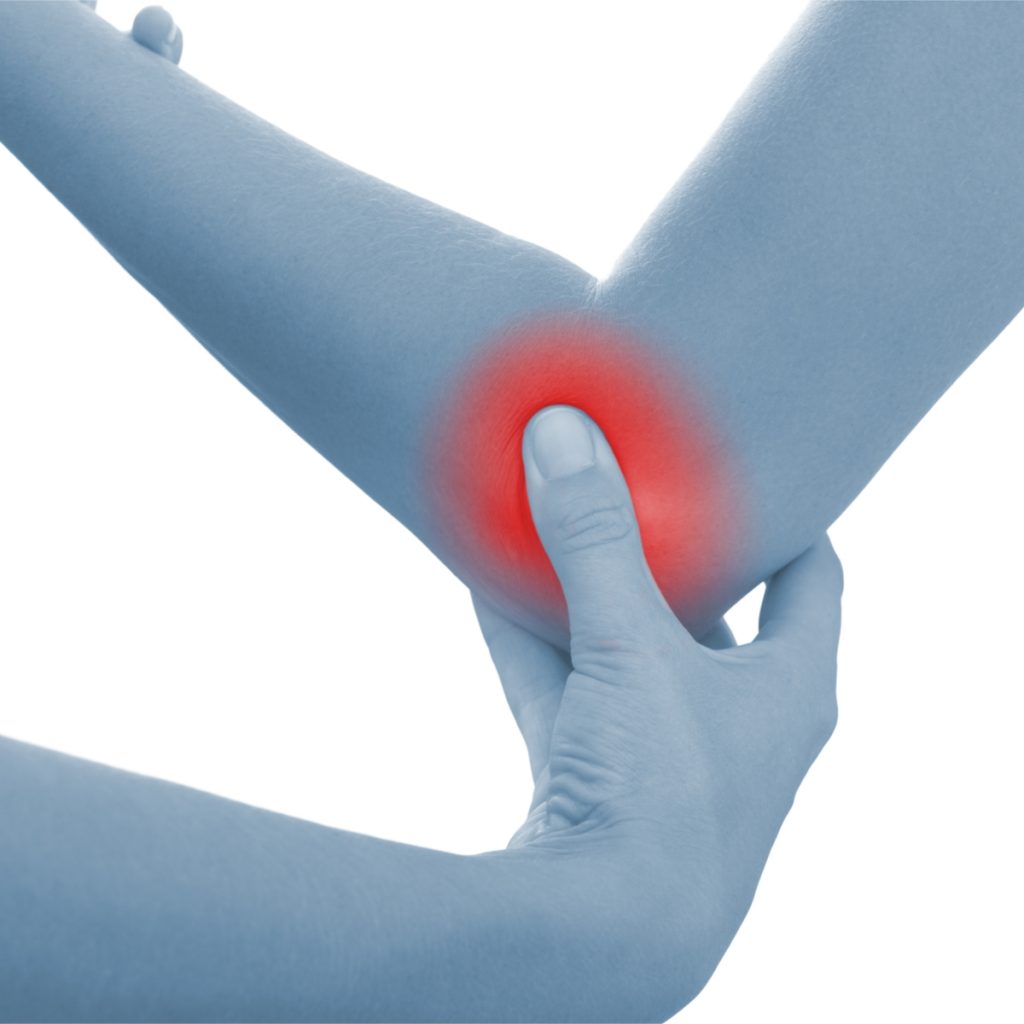RA
In part 2, Neil Liffen, of East Coast Physio, discusses general diagnosis and investigations of Rheumatoid Arthritis (RA).
How is RA diagnosed?
When you first develop joint pains, it may at first be difficult for a doctor (or rheumatologist) to say that you definitely have RA, because there are many other causes of joint pains. Unfortunately, there is no single test which diagnoses early RA with 100% certainty, therefore a delay in achieving a specific diagnosis is common in the early stages of the condition. If suspected, a GP commonly refers patients to a rheumatologist who arrive at a diagnosis based on your symptoms, a physical examination and the results of blood tests and investigations.
What tests are the investigations (imaging) for RA?
Common investigations of RA include ultrasound and x-ray. Ultrasound is commonly used for early detection and monitoring common RA features, such as:
• Synovial hypertropy (thickening of the synovium; Figure 1)
• Active synovitis (increased power Doppler activity indicative of inflammation; Figure 1)
• Tenosynovitis
• Bone erosions (Figure 2)
• Degenerative changes
Ultrasound has been proven to be more sensitive in early detection of bone erosions in comparison to x-ray, with added benefits of evaluating the soft tissue changes of RA. MRI is less commonly used due to cost, waiting times, and patient risk of anxiety and claustrophobia. Commonly, your doctor may perform investigations of your joints which are not painful because commonly RA features can be present in the absence of pain. Later changes can be detected by x-ray and chronic inflammation can lead to severe joint destruction. Therefore, early diagnosis is essential to reduce the inflammation in the joints that lead to joint destruction.
Blood tests
Your doctor will perform blood tests to measure inflammation, which include erythrocyte sedimentation rate (ESR) and C-reactive protein (CRP). Other blood tests may include of blood markers including rheumatoid factor and anti-cyclic citrullinated peptide (aCCP). A positive rheumatoid factor is suggestive of RA, but not conclusive. A more recently developed test is aCCP which has been found to be more specific than rheumatoid factor in the diagnosis of RA.
At ECP we perform diagnostic ultrasound, and commonly encounter clients who have RA features and we manage and advise them appropriately. If you require further information, please contact ECP.

Figure 1. Synovial Hypertrophy and Active Synovitis

Figure 2. Bone Erosion with Doppler



